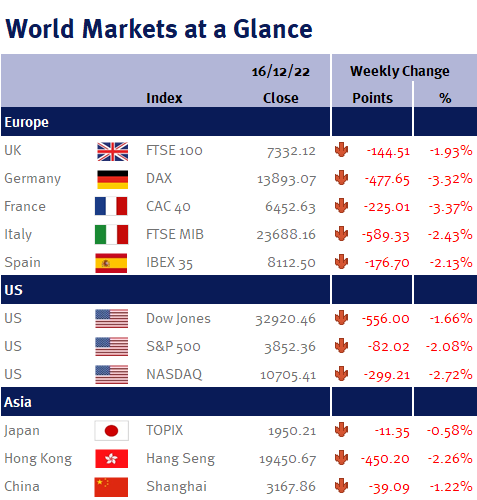Central banks slowed the pace of interest rate hikes this week. The Bank of England, the Federal Reserve and the European Central Bank (ECB) all raised the rates by 50 basis points as markets expected.
The Bank of England voted by a majority of 6-3 to raise interest rates by 50 basis points to 3.5%. The governor of the Bank of England, Andrew Bailey, said that the Bank expects inflation to fall “quite sharply” by the middle of next year and expressed the need to balance increasing borrowing costs without having adverse effects on economic growth. In the UK, the number of people claiming unemployment benefits rose by 30,500 in November, the biggest increase since February last year. UK inflation eased to 10.7% last month, down from the October high of 11.1% and lower than expectations as transport costs fell back, particularly motor fuels. Bailey said that this week’s inflation data was a “glimmer” that inflation was easing and lower than the bank had anticipated.
The ECB and Fed have signalled more increases to come: US Fed Chair, Jerome Powell said that they would continue to raise rates into 2023 and said “the largest amount of pain, the worst pain, would come from a failure to raise rates high enough and from us allowing inflation to become entrenched”.


